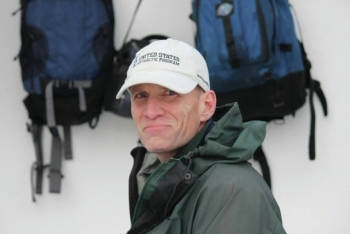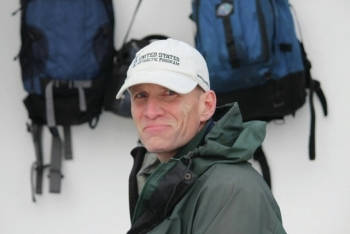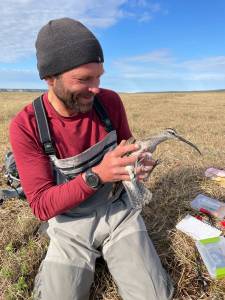Point of View: This is a bad time to harass Kachemak Bay wildlife
Published 1:30 am Saturday, January 18, 2020


In case anyone hasn’t noticed, our ecosystems in Alaska are collapsing. It all starts in the Arctic, specifically the Bering Sea where the ominous signs of the impacts of climate change on ecosystems were vividly illustrated in 2019, by reports of alarming die-offs of gray whales, seals, sea birds, salmon, and other fresh and marine water species due to high water temperatures, loss of sea ice and increases in harmful algal blooms. Because the Bering sea is sort of like the canary in the coal mine for what we can expect in the rest of the Arctic, it seems that even if we can turn global CO2 emissions around, the ecosystem in the Arctic will eventually unravel.
These same signs of unraveling ecosystems are showing up throughout Alaska, including the Kachemak Bay Fox River Watershed. In 2019, for example, several thousand common murres starved to death in the bay when the forage fish they depend on became inaccessible and thousands of outmigrating and returning salmon died in Jakolof Creek for the second time in three years because the stream dried up completely at the end of August. For the sixth year running, clam populations did not support harvesting on the north side of the bay, and sea otters continued to wash up on local beaches, dead from a bacterial infection thought to be exacerbated by warming ocean waters.
So, with the Kachemak Bay Fox River Watershed showing signs of the same dramatic impacts to marine and freshwater species that have been occurring in the Arctic, it’s fortunate that almost 50 years ago, the Alaska Legislature had the foresight to establish the Kachemak Bay Fox River Critical Habitat Area (CHA) in order “to protect and preserve habitat areas especially crucial to the perpetuation of fish and wildlife, and to restrict all other uses not compatible with that primary purpose.” With climate change beginning to take its toll on fish and wildlife, we need this unique area to serve as a sanctuary, or at least a place where climate-related impacts can be kept to a minimum.
Gov. Mike Dunleavy for example, quashed research that has illuminated the unprecedented effects of increased carbon emissions on the state’s fresh water and marine ecosystem by dismantling the state’s Climate Action for Alaska Leadership Team established by Gov. Bill Walker and by imposing substantial budget cuts on the University of Alaska. Now, the Dunleavy administration is attempting to add increased harassment to the list of threats to fish and wildlife species in the form of the Dunleavy administration’s recent proposal to repeal the ban on Jet Skis (or personal water craft) within the CHA.
Groups who support allowing Jet Skis within the CHA point out that power boats have been operating within the CHA from the beginning, and authorizing Jet Skis, therefore, is a simple matter of fairness. Jet Skis, however, are a different breed from your run-of-the-mill power boats because they are loud, fast and maneuverable machines used solely for recreational purposes and, therefore, are more likely to be used to inadvertently or purposefully harass wildlife.
Also, there are multiple other activities already taking place within or directly adjacent to the CHA, that potentially threatened fish and wildlife habitat because they can result in damage to salmon streams, low water flows, competition with invasive species or harassment of fish and wildlife, including livestock grazing and illegal four-wheeler use, fish hatcheries and nearby hydropower diversions. Instead of adding one more such activity to the list, therefore, we should be looking at means to mitigate the existing non-climate stressors before they hasten the demise of the fresh water and marine ecosystems already straining under the weight of rapidly increasing temperatures and drought.
Send your comments to Rick Green, Alaska Department of Fish and Game, 333 Raspberry Road, Anchorage, AK 99518-1565 or email rick.green@alaska.gov, by Jan. 21.
Hal Shepherd is a writer and consultant focusing on water and Arctic policy and living in Homer.






